Enable Innovative Research & Creative Activities
Davis College of Agricultural Sciences & Natural Resources
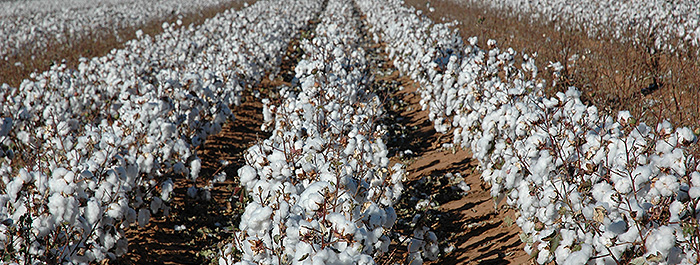
Goals
- Increase the productivity and impact of research, scholarship, and creative activity that advances knowledge, benefits human society and quality of life, and contributes to economic development.
- Enhance capacity and opportunities for research, scholarship, and creative activity for faculty, students, and staff.
- Advance entrepreneurial activity, collaboration, and innovation and technology transfer.
Strategies
- Expand the number of cross-college and multi-institutional teams developing federal and other proposals where Davis College can be both a lead and a collaborator. Engage the Davis College grants office and the TTU Office of Research Services to assist faculty teams in preparing these proposals.
- Build a faculty appointment system that defines faculty expectations and responsibility (% teaching, % research, % service).
- Emphasize the number of grants submitted and amount of dollars requested, regardless of sources (federal, state, private, industry, etc.).
- Track the number of awards made and dollar value awarded by faculty member, department and college, by source (federal, state, private, industry, etc.).
- Track total expenditures and research expenditures as determined by the NSF HERD report.
- Grow the number and quality of publications in top-tier disciplinary journals.
- Grow the number and quality of faculty and student presentations made at professional society meetings. Evaluate the success of programs using an assessment and evaluation team comprised of faculty from each Davis College department. The assessment team will establish an annual faculty report on progress.
- Conduct a Faculty Fellows Development Program which assists newly hired faculty learn the components of being a successful faculty member.
- Develop a Davis College level committee to advocate nominations for the types of honors and recognitions that are targeted in professional societies.
- Implement a Davis College Research Day.
- Develop a Davis College funding mechanism for scholarly output.
- Establish a grant program with the VPR to support these activities and create a Davis College-specific "Innovation Hub."
- Create links to Davis College webpage and Davis College alumni webpage relative to transfer information to stakeholders. Provide links to Development Office and Davis College Alumni Publications/Outreach materials.
Strategic Initiatives
Water & Resource Conservation – As groundwater declines in the Southern High Plains, a primary focus of Davis College is conservation of water and water-based resources. The Davis College Water Center is a platform for communicating information and opportunities for cooperation focusing on water-resource activities. These and other research groups strive to conserve and efficiently use limited environmental resources while strengthening rural agricultural economies.
Institute for Genomics of Crop Abiotic Stress Tolerance – IGCAST is a new institute at Texas Tech University that will focus on using state of the art functional genomics to study processes involved in the tolerance to different types of abiotic stress (drought, salinity, heat, cold and low nutrient availability) and in the use of synthetic biology for the improvement of crop abiotic stress tolerance.
Fiber and Biopolymer Research Institute – The Fiber and Biopolymer Research Institute is committed to serving the research needs of manufacturers, cotton breeders and public agencies. Academic programs, in conjunction with other colleges at Texas Tech, are continually seeking collaborations. Research done at the Fiber and Biopolymer Research Institute is changing the way the world talks about Fiber Quality. The FBRI hosts the Texas International Cotton School, which is uniquely structured, to provide an integrated understanding of the Texas cotton industry and how it interacts with the global cotton/textile complex.
Quail-Tech Alliance – The Quail-Tech Alliance strives to increase the population of quail in the Texas Rolling Plains by collaborating with conservation-minded individuals to expand sustainable populations through increased knowledge, understanding and research. Their goal is to reverse the decline of quail in Texas and stretches across 38 counties and 22 million acres in the Rolling Plains of Texas, representing areas populous in quail and those where quail populations have declined. Backed by their anchor ranches, they are conducting one of the largest quail data collection efforts to learn how to best protect quail populations and habitat.
International Center for Food Industry Excellence – The International Center for Food Industry Excellence (ICFIE) provides innovation, research, and technology transfer across the four pillars of food security. Focus areas of the center include food access, availability, stability and utilization both domestically and internationally. We are working to address the need of feeding a growing worldwide population in a climate of shrinking resources, political unrest and increasing input costs. Through research, education and outreach, we will identify and implement the methods that will allow us to feed the world, now and in the future.
Llano Estacado Big Data for Decision Making and Landscape Visualization – The Llano Estacado big data project integrates thousands of data sets necessary for innovative research, visualization (AR, VR, xR), and decision making in the High Plains regional landscape. The Department of Landscape Architecture investigates and develops new data resources to aid understanding, management, planning and design of agricultural, rural, and urbanizing landscapes of the Llano Estacado. The ambition is to create a digital twin of this globally important agricultural region to test alterative futures vital to adaptability and resiliency of the regional: economy, natural beauty, playa lake ecosystems, aquifer resources and recharge, and biodiversity functions critical to migratory birds and invertebrate species, as well as crops and livestock. Ultimately, these data are catalysts to research questions, funding and publications critical to this semi-arid region's adaptability and resiliency within a rapidly changing world with over 9B people in the next 20 years.
Table 2
| College of Agricultural Sciences & Natural Resources | 2016 | 2017 | 2018 | 2020 Target | 2025 Target |
|---|---|---|---|---|---|
| Total grant submissions, ** $ M | 35.47 | 37.96 | 44.73 | 45.0 | 53.0 |
| Total awards, ** $ M | 7.01 | 7.32 | 7.92 | 8.7 | 10.9 |
| Total research expenditures, ** $ M | 19.61 | 21.90 | 23.86 | 25.1 | 28.4 |
| Federal research expenditures, ** $ M | 3.26 | 3.44 | 3.31 | 3.48 | 3.90 |
| Research presentations | ICD# | ICD# | 285 | 350 | 400 |
| Refereed journal articles DM | ICD# | ICD# | 236 | 260 | 332 |
| Books/Book Chapters (refereed) *D | ICD# | ICD# | 10 | 11 | 19 |
| Editorial Boards *D | 27 | 33 | 41 | 42 | 47 |
** TTU Metrics for Colleges and Departments
DM Digital Measures
# ICD Incomplete Data
Inside
Introduction
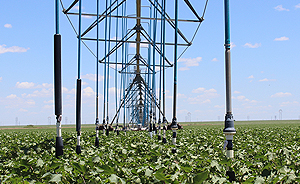
Teaching
Educate & Empower A Diverse Student Body
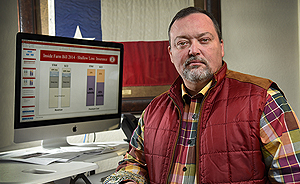
Research
Enable Innovative Research & Creative Activities
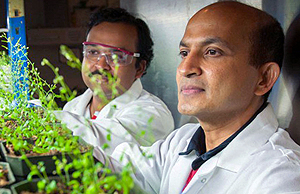
Service/Outreach
Transform Lives & Communities Through Strategic Outreach & Engaged Scholarship
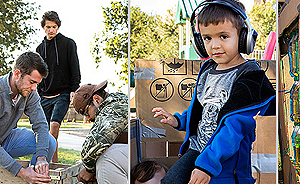
Davis College of Agricultural Sciences & Natural Resources
-
Address
P.O. Box 42123, Lubbock, Texas 79409-2123, Dean’s Office Location: Goddard Building, Room 108 -
Phone
(806)742-2808
